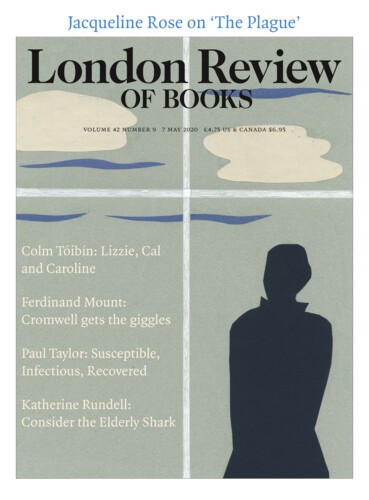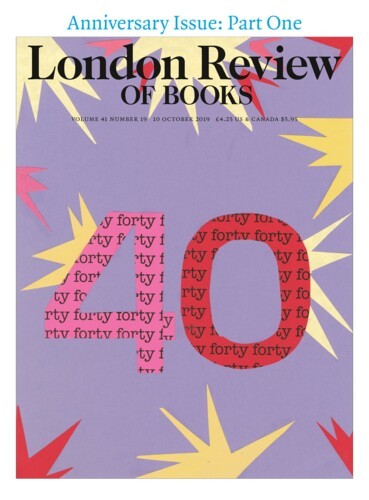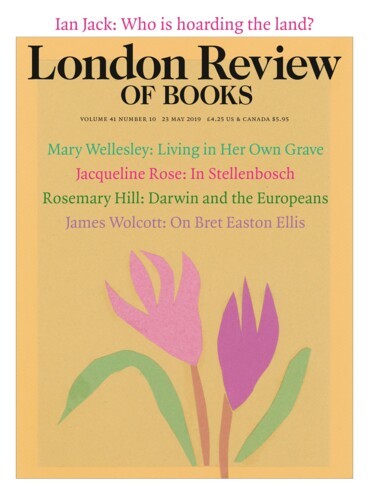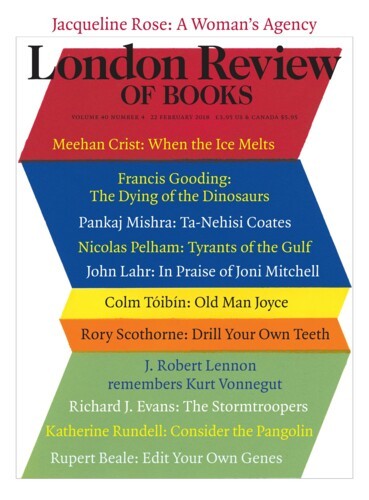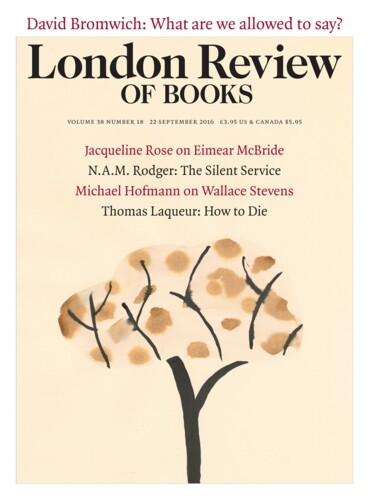Pointing the Finger: ‘The Plague’
Jacqueline Rose, 7 May 2020
Ever since the arrival of Covid-19 – in Western Europe, roughly at the end of January – sales of Albert Camus’s The Plague, first published in 1947, have increased exponentially, an upsurge strangely in line with the graphs that daily chart the toll of the sick and the dead. By the end of March, monthly sales of the UK Penguin Classics edition had grown from the low...
